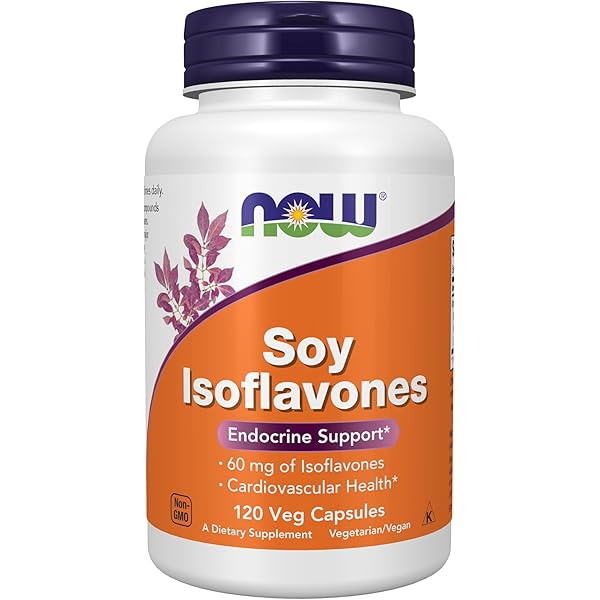Soy Isoflavone Supplements: Promising Benefits with a Bioavailability Problem

Soy isoflavones are plant-derived compounds (phytoestrogens) found primarily in soybeans, and they have drawn considerable interest in the scientific and health communities for their potential health benefits. Available in various over-the-counter supplement forms, soy isoflavones are often promoted for hormone balance, cardiovascular health, bone density, and even anti-aging.
However, while the benefits look promising, there’s a growing conversation around a major limiting factor: bioavailability. In other words, how much of these isoflavones are actually absorbed and used by the body?
What Are Soy Isoflavones?
Soy isoflavones, particularly genistein, daidzein, and glycitein, are structurally similar to estrogen and can bind to estrogen receptors in the body—though they are significantly weaker. Because of this, they are often used as natural alternatives to hormone therapy, especially during menopause.
Potential Health Benefits
Here are some of the key health benefits that research has associated with soy isoflavone consumption:
- Menopausal symptom relief
Isoflavones may reduce hot flashes, night sweats, and mood swings in menopausal women. - Bone health
Some studies suggest isoflavones can help maintain bone density in postmenopausal women, reducing the risk of osteoporosis. - Heart health
They may help lower LDL cholesterol and improve arterial function. - Cancer prevention
Epidemiological studies show lower rates of hormone-related cancers (e.g., breast and prostate) in populations with high soy intake, though results are mixed in supplement form. - Cognitive support
Some small trials have noted potential benefits in memory and brain function, particularly in aging adults.
The Bioavailability Problem
Despite these benefits, a major challenge with soy isoflavone supplements lies in bioavailability—how effectively the body absorbs and utilizes these compounds.
Key issues:
- Low absorption rates:
Most isoflavones are consumed in the form of glycosides, which must be converted into the more active aglycone forms in the gut. This process is inefficient and heavily depends on an individual’s gut microbiome. - Interindividual variability:
Only 30–50% of people can metabolize daidzein into equol, a more potent and bioavailable compound. Those who can are known as “equol producers,” and they may gain more from isoflavone intake. - Short half-life:
Isoflavones are quickly metabolized and excreted, meaning consistent intake is required to maintain effects. - Supplement form matters:
Whole-food soy and fermented soy products (like nitrogen fermented, natto, miso, and tempeh) typically offer higher bioavailability than isolated supplements due to natural enzyme activity and microbial action.
Should You Take Soy Isoflavone Supplements?
If you’re considering soy isoflavone supplements, it’s important to weigh potential benefits against their limited absorption. They may be helpful—especially for mild menopausal symptoms—but they’re not a one-size-fits-all solution.
Tips for better results:
Look for fermented isoflavone supplements or those labeled as containing aglycone forms (like genistein or daidzein aglycone).
Support your gut health with a probiotic-rich diet to improve conversion.
When possible, choose whole food sources of fermented soy, which naturally enhance bioavailability.
Final Thoughts
Soy isoflavones offer compelling potential as natural health boosters, especially for hormone balance and heart health. But for many, the effectiveness of supplements is limited by poor bioavailability. Choosing fermented soy foods or high-quality aglycone supplements—and being mindful of your gut health—can help you make the most of what soy isoflavones have to offer.
